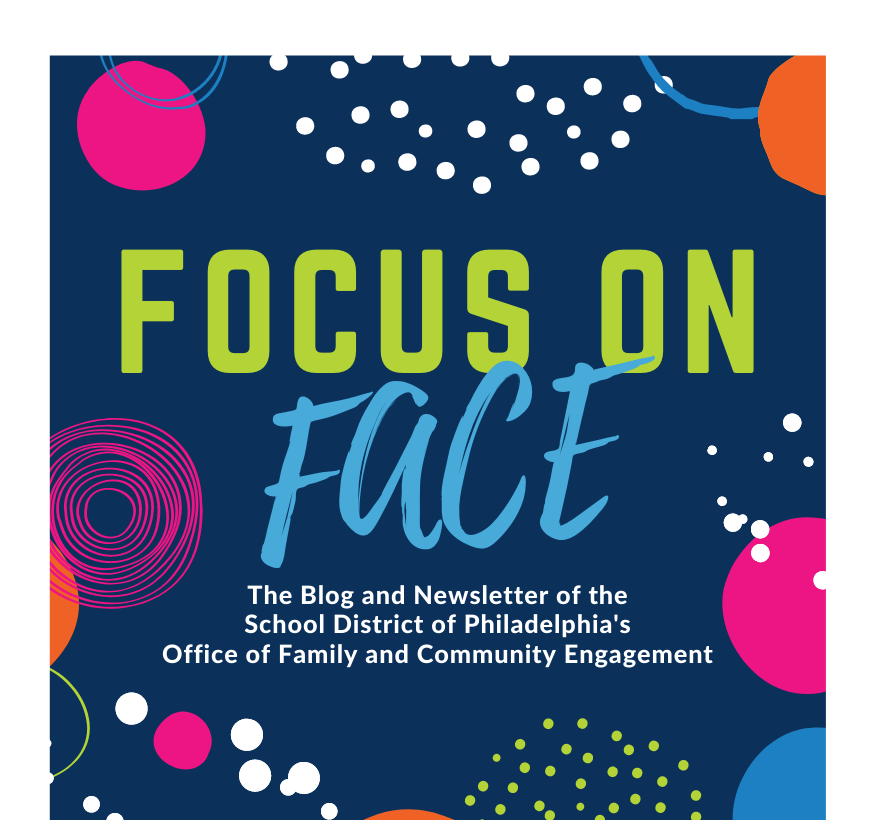Very often when people are eager to volunteer in a School District of Philadelphia school they feel overwhelmed and confused. They ask, where do I start? Who do I talk to? What paperwork do I need? Will I make a difference? Jessica Freeman, School Improvement Support Liaison (SISL) at Commodore John Barry Elementary School in West Philadelphia, hears these questions and works very hard to make sure that volunteers in her school feel comfortable, useful, and rewarded.
Ms. Freeman has worked for the School District of Philadelphia since 1983 and has had many roles in several schools since then. She has been a SISL since 2008 and has worked at Barry for the past several years. SISL responsibilities change day to day and from school to school, but they often deal with family and community engagement, attendance, supporting School Advisory Councils, handling family concerns, and hosting workshops, just to name a few. Ms. Freeman calls every day an “adventure.” A large portion of her job—something she takes great pride in—is managing volunteers at the school.
About three years ago, members of the Mount Carmel Baptist Church, which is down the street from Barry, eagerly contacted the school to offer their time and services to the school community. Ms. Freeman understood that their enthusiasm should be put to good use and decided to create a structured literacy program from scratch.

“I had to get our administrative team, the CLI (Children’s Literacy Initiative) Coach, the reading specialist, the parents, and the teachers in grades Pre-k through 3 to buy into the project,” she explained.
Once this happened, she had to actually make the project happen, which included staying in constant contact at all hours of the day with the volunteers from the church to hammer out the details. What they decided on eventually became the “Mount Carmel Volunteer Reading Project.”
At the beginning of the school year, Ms. Freeman asks each teacher in the early grades if they would like a volunteer to support their classroom, and if they do, to identify a small group of students whom they feel need additional help with literacy (with their guardians’ permission).
Then, she gathers the group of volunteers from the church to make sure they have all of the proper clearances and understand expectations. Ms. Freeman also asks the volunteers about which grades they feel comfortable supporting. Finally, she assigns the volunteers to a group of students in a particular classroom.
Every Thursday morning the group of roughly 12 people from Mount Carmel signs in and then head to their classrooms for the morning to spend time with their group of students and read together. Vivian Barrett, a member of the church and a reader with the Reading Project, believes the program is going very well so far this year and explains that they are “primarily there to help the youngsters to see that reading can be fun [while] working with the stories that the teachers may have assigned.”
Ms. Freeman wants to make sure that everything is going well, so after their classroom visits she has the volunteers fill out a feedback questionnaire to tweak the program if necessary. The feedback is largely positive and many of the volunteers note the improvements they see in students and how grateful they are for that extra attention.
Ms. Freeman considers this project to be an incredible success, to the point where children who may not need the additional resources get excited and want to participate too.
“They want to get in! They’re excited too, and say, ‘Can I come?'” Ms. Freeman said. “It’s explained to them that these students are getting additional support and they understand.”
Although she and the volunteers from Mount Carmel have worked hard to form this program, Ms. Freeman also emphasizes that credit must be given to families who allow their kids to participate in the program as well as Barry’s Principal, Derrick Hardy, who has supported the program since he arrived at the school.
The Mount Carmel Volunteer Reading Project has sparked ideas for further collaboration with the church as well as different programs, like introducing more extracurricular activities to students and increasing male volunteerism in the school. Although she knows that pacing herself and working on one project at a time is critical, Ms. Freeman already knows that this literacy program has become the model for how they would like future volunteer programs to work.

